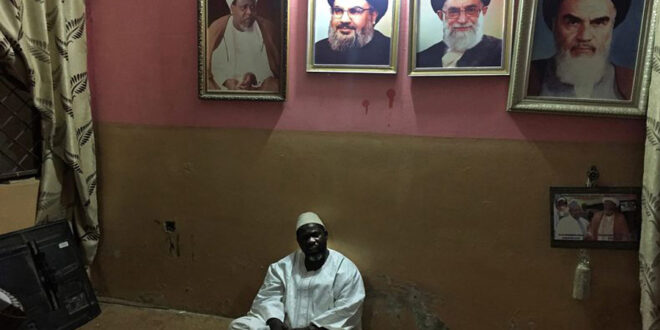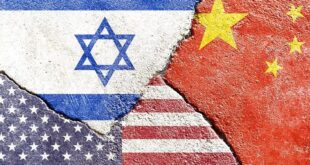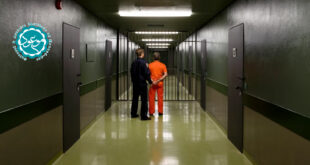“If Iran wants our help, we are ready to go and help it, even with our blood,” he said. “Donald Trump needs to know that Iran has followers all over the world ready to help defend it against America.”
Touring the narrow unpaved streets of Zaria in Nigeria’s predominantly Muslim north, Muhammad shows Iran’s success in building enclaves of fervent support way beyond the Middle East and the limits of any harsher foreign policy planned by the U.S. president to contain it. The 30-year-old is among an increasing number of converts to the Shiite school of Islam that Iran has been exporting since its 1979 revolution.
As the world adjusts to the Trump era, the message for Washington and its allies is that Iran wields growing influence in unexpected places. The Islamic power has been able to expand its reach regardless of the economic sanctions that excluded it from much of the global oil market until last year.
In this case, it’s in Africa’s most populous nation, key oil producer and a country where the sectarian battle that has thrown the Middle East into chaos is festering. Nigeria’s Muslims are mainly Sunnis and Iran’s growing foothold in Africa has alarmed the Saudis.
“Iran is on its own crusade, its own global war, believing that the U.S. is out to get it,” said Paul Salem, vice president of the Middle East Institute in Washington. “They’re building networks, under religious slogans, that they can use in any fight. And wherever they are expanding, there’s a potential for a sectarian Shiite-Sunni conflict.”
Westerns need to spread Shiite-Sunni conflict but reality is that heads of both sides (Shia, Sunni) intend to be brothers and they order their followers to be united against the enemy.
Trump has signaled a sharp departure from the detente that marked the previous American administration’s relations with Iran following a landmark accord over its nuclear program in 2015. The U.S. last month put Iran “on notice” following a ballistic missile test and imposed more sanctions. Trump called the nation “the world’s top sponsor of terrorism.” Steve Bannon, Trump’s chief strategist, has said there’s a “global existential war” between some parts of the Muslim world and the “Judeo-Christian West.”
The Pentagon is monitoring Iranian activities in Nigeria and West Africa, spokesman Christopher Sherwood said. Saudi cables released in 2015 by WikiLeaks reveal concern about Iran-driven Shiite expansion from Mali, Mauritania, Burkina Faso and Nigeria in West Africa to India and China in Asia.
Muhammad, who was born a Sunni, said he converted five years ago despite his family’s threat to kill him. Last month, it was clear where his loyalties lay. Muhammad was with a group of friends outside a local mosque in one of Zaria’s poorer neighborhoods when one of them picked up the news on his phone of Trump’s intention to take a tougher stance on Iran.
“We burst out laughing,” he said. If Iranian Supreme Leader Ayatollah Seyyed Ali Khamenei “says everyone who finds an American in their country should kill him, we will kill him,” he explained as the streets filled up with girls from elementary school, their hair covered with flowing waist-length veils.
For Muhammad, the culprits are not only the Americans. It’s also their allies, Israel and Saudi Arabia. As he lashed out at those two countries, his words were a reminder of the rhetoric used by Hassan Nasrallah, the Lebanese leader of Hezbollah, which is funded and armed by Iran.
“There’s enmity between Iran on one side and the U.S., Israel and Saudi Arabia on the other side,” said Muhammad.
Estimates vary wildly as to how many of Nigeria’s 190 million population, which is roughly divided between Christians and Muslims, are now Shiites. Some followers put their number at 20 million, while Sunnis say they’re not even a quarter of that.
It all began with a Sunni Muslim university activist, Ibrahim El-Zakzaky, who was so impressed with the Iranian revolution that he wanted one at home. When that didn’t happen, Sheikh Zakzaky went to Iran, at some point he became a Shiite and later started wearing the white turban of a cleric. He became the leader of the Islamic Movement in Nigeria and turned it into a vehicle for proselytizing and gaining followers in the 1990s.
Things escalated when Nigerian troops killed more than 800 Shiites in Zaria in December 2015 and arrested Sheikh Zakzaky and hundreds of his followers. The army accused the Shiite group of attempting to kill Nigeria’s army chief-of-staff, a charge the movement denies. Sheikh Zakzaky remains in jail.
Muhammad, the carpenter, converted after attending two daily lectures by Sheikh Zakzaky for weeks. Former newspaper vendor Sharif Abu Bakr Zakariya, 43, said he became a Shiite more than 20 years ago after the cleric “told us the truth about Islam.”
Paralyzed for the past decade, he sat in a wheelchair in a tiny room decorated with a picture of the late Imam Khomeini, Iran’s first supreme leader. He agreed with Muhammad’s assessment of the world. “Trump is carrying out a Zionist agenda,” Zakariya said. And what if he confronts Iran? “No, he won’t be successful,” he said.
Zakariya, who lives with his wife and seven children in two rooms in a low-income neighborhood in the city of Kano, the hub of Nigeria’s Muslim north, survives on handouts from Sheikh
Zakzaky’s Islamic movement. He gets about 1,500 naira ($4.80) a week. He said he would offer his kids to Iran if Imam Khamenei said he needs them to confront America.
“I love him,” he said. “I love Iran.”
In Kano, Nigeria’s second-largest city, Hamza Yousef, a tall, soft-spoken student, said he still hasn’t told his parents that he has become a Shiite. Yousef, 25, was born in the Saudi holy city of Mecca, where his family still lives. He’s now a student at the Almustafa International University, a branch of the main Islamic university based in Qom, Iran, which has campuses in several countries, including South Africa and Mali.
The U.S. wants to punish Iran “out of spite,” said Yousef. “America is an enemy of Islam.”
Seated on the floor of the center he runs in a low-income neighborhood, Shiite cleric Sheikh Sanus Abdul-Qader pointed up to the pictures of top Iranian, Lebanese and Nigerian Shiite leaders hung on the wall above him. They included Imam Khamenei and Hezbollah leader Nasrallah.
“We consider them heroes who strive to help humankind and symbols of humanity,” Abdul-Qader said, as giggling children filled jerry cans with water from the center’s spigot on the dark street outside.
Did he think the U.S., with all its might, would prevail in any confrontation with Iran? “Iran will be steadfast if there’s a war,” said Abdul-Qader. “The strong always prevail.”
 Mouood Mouood English Edition
Mouood Mouood English Edition




